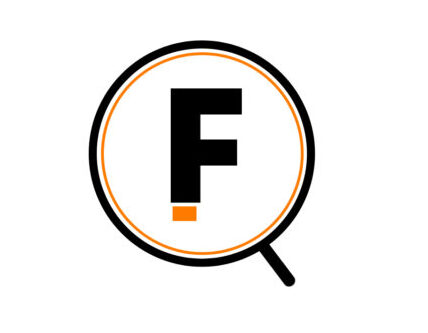Understanding Your Debt
The first and very important step which needs to be taken in order to launch the action within the framework of the necessary plan is learning your current state of debt.
This entails preparing a chart with tabs that first include the overall amount of the outstanding balance, to whom it is due, the interest rate, the minimum monthly payment, and the current balance and payment due dates. It just you them aware and have perhaps, some level of understanding when it comes to your financial obligations.

Why It Is Crucial to Pay Off Your Loans as Soon as Possible
Long-term debts are costly in terms of interest charges when compared to regular cash credit.
Paying off debts early, results in saving on interest costs, avails more cash flow to be used for other productive purposes, as well as reducing anxiety. Assess high-interest debts and fashion a payment plan to pay off the debts that can be realistically achievable.
The following are some of the ways through which people can adopt a debt management plan and repay their debts:
Once all the debts are identified, a clear and elaborate plan should be developed on the manner in which the liabilities will be paid. Rank the debts from the highest rate of interest and start with the payment to the debt with the highest rate of interest first.
Determine the amount of additional money each month you can allocate towards debt beyond the bare minimum. When one is communicating a plan, they are likely to stick to that plan since it has been put down in writing.
Budgeting for Debt Repayment
Make a table that tracks all the income and expenditure for the month. Find what costs can be cut with the extra money being used to pay off debts. Budgeting enables you to know how much of your money goes into different needs and how much is available for use to repay debts.
Increasing Your Income
Think about methods that could help you earn more money even if it is selling some of the items you no longer use, coming in early or working extra hours, or negotiating for a higher salary or starting a second job.
Such income can help to increase the speed of paying the debts since the extra income will be used to make the payments. Think of numerous possibilities and then select the best choice out of them.
Minimizing Expenses
Make sure to check the expenses you made during the month to know which areas you have to cut down from your expenses. Reduce the expenses on goods and services that are not necessities, such as food from restaurants, going to the movies, unnecessary subscriptions.
Consider cheaper insurance options, you can also reduce the service plans of internet and cellphone. The amount of money that can be saved is more than what is needed to pay back a loan.
Prioritizing High-Interest Debts
If the financial situation does not allow all the debts to be paid as aggressively, it is better to pay off high-interest debts. All interest rates should be listed – credit card debts as well as personal debts usually have higher rates.
The payments should then be made just to meet the minimum balances on these low interest debts while any additional cash should be directed to the highest interest debts until the debts are paid off.
Exploring Debt Consolidation Options
Another option is to combine or group a number of high interest debts into one lower interest consolidated loan to allow for early paying off of the debts. This compounds the finances into a single Monthly Loan Repayment. Don’t be tempted to bring back more debt on the credit cards once you pay for the balances.
Negotiating with Creditors
Communicate with credit card companies and other lenders, and negotiate lower interest rates, or payment plans that you can afford to make regularly. You would be surprised how many creditors do not mind having a customer who is willing to pay back the loan, so you can always try to ask them politely to agree on a repayment plan that is affordable for you.
Avoiding Additional Debt
It is advisable to avoid accumulating new unnecessary debts during the period of repaying past debts in order to deter a goals’ counteraction. Avoid buying any non-needful items for cash and abide by your budget. Avoid using credit cards to an extent where you are unable to pay the bills. Accumulate money as an emergency fund since it is very essential in enabling one to meet an emergency.
Staying Motivated
The most important guideline is to stay customer-focused and monitor payback to ascertain that one is heading in the right direction and towards the realization of the set goal.
What you realize when you are seeing that the balances are going low and the money saved in interest is enough to assure you that a job was worth it all. Celebrate hitting mini-milestones. This is probably the cause of the problem where people give up; put a note, for example, on the door or the refrigerator and remind yourself of why it is important to be free from debts.
Seeking Professional Financial Advice
If it is too overwhelming for you to handle on your own, then it is advised to consult a nonprofit credit counseling agency which can help on the factors of budgeting, negotiations with creditors or even help in formulation of Debt Management Plan. It means that the input originating from the outside of the given cycle has the potentiality of expanding the possibilities.
Monitoring Your Progress
Self-reminders about the repayment of the debts should be done at least monthly. Concerning the changes in the account balance, it is to notice that interest charges are also going down, and extra principal is getting paid. It keeps one on his toes with regards to costs and focuses your attention on projects that are deviating from the set budget so that corrective actions can be taken.
Celebrating Milestones
When paying off large debts that are still active, it is wise to look for the small successes. It helps you to continue to focus on the next available target for paying the debt. It also helps when, through milestones, it is being pointed out that the short-term sacrifices are worth it since each debt off means better days in the future. When you have positive outcomes discuss them with positive people of your life.
Conclusion
To optimise the debt repayment one has to do it strategically and pay off the debt earlier than required by the lender. This will save a lot of money in the long run.
This methods includes adequate consideration of which debts to pay first, the need to be disciplined in creating and sticking to a repayment schedule, seeking ways of generating more money, reducing expenditure, bargaining for favorable interest rates, avoiding incurring further debts, monitoring one’s progress, and being encouraged or given focus on last goals. But no matter what, it’s possible to wake up one day without any debt on the horizon – all it takes is perseverance and time.


